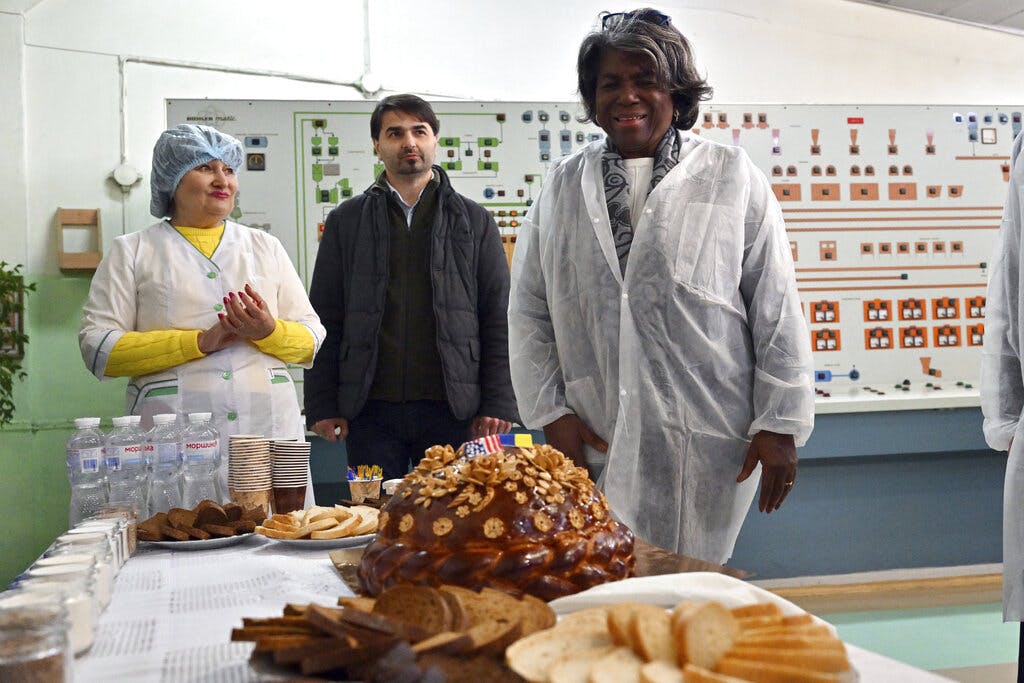Fears About America Ending Ukraine Support Appear Overblown, for Now
War fatigue and budget pressures may well be around the corner — and the search for a quick exit strategy could come from both parties.

While the American and world press is filled with trepidation over the possibility of America ending its support of Ukraine against Russia if Republicans flip control of Congress in today’s elections, the reality of the situation is a bit more nuanced than is generally being reported.
“Kevin McCarthy and Ukraine: Could US Elections Change the War?” reads a headline on the British Broadcasting Service’s website, referring to a recent comment made by the House minority leader — and possible speaker in a GOP-led House — calling for congressional oversight of aid to Ukraine.
Breathless reporting over the possibility that a Republican-controlled Congress would end war support for Ukraine was, perhaps, one reason that the American ambassador to the United Nations, Linda Thomas-Greenfield, today made a previously unannounced visit to Kyiv, where she met President Zelensky.
In Kyiv, the ambassador announced a new $25 million American aid package, saying that “with winter fast approaching, we understand the importance of helping Ukraine keep homes warm and the power on.”
Since the start of the war, America has sent some $66 billion to Ukraine, by far the most of any country. The sum includes $1.5 billion in humanitarian aid, as well as the “necessary defensive equipment for them to respond to this Russian aggression,” a senior administration official said this morning in a briefing on the ambassador’s trip.
The official, who spoke on condition of anonymity, added that “the message coming out of today’s election will be the same message we had going in: There is a strong bipartisan support for the people of Ukraine, and that support will continue as long as necessary.”
President Biden is reportedly planning to use Congress’s post-election lame duck period to ask for a new aid package for Ukraine. At the same time, perhaps to allay bipartisan fears of an endless commitment, Mr. Biden’s envoys are working behind the scenes to soften Mr. Zelensky’s opposition to war-ending negotiations.
After vowing that there would be no “blank check” for the administration, Mr. McCarthy said he is “very supportive of Ukraine,” adding he merely wanted to “make sure that resources are going to where it is needed, and make sure Congress and the Senate have the ability to debate it openly.”
More ominously, Representative Marjorie Taylor Greene, a Republican of Georgia, vowed to approve “not another penny” for Ukraine if Republicans win the House.
Countering such sentiments, the Republican who hopes to replace Senator Schumer as majority leader, Senator McConnell, said he hoped “not many members of my party will choose to politicize this issue.” Other top Republicans vowed to continue support of Ukraine.
Meanwhile, a letter signed by 30 Democratic members of the House progressive caucus last month called on President Biden to “pair the military and economic support the United States has provided to Ukraine with a proactive diplomatic push, redoubling efforts to seek a realistic framework for a ceasefire.”
The White House and Democratic leaders leaned on the progressive caucus’s chairwoman, Representative Pramila Jayapal of Washington, to denounce her own letter, as it surfaced just as criticism of Mr. McCarthy’s comment was gaining steam.
In withdrawing it, Ms. Jayapal made sure that politics remained front and center, writing that her letter “created the unfortunate appearance that Democrats, who have strongly and unanimously supported and voted for every package of military, strategic, and economic assistance to the Ukrainian people, are somehow aligned with Republicans who seek to pull the plug on American support” for Ukraine.
Three-quarters of all Americans support continuing economic and military aid to Ukraine, according to several recent polls. One such poll last month found that 81 percent of Democrats and 66 percent of Republicans support continuing aid to Ukraine.
The White House, however, seems to suspect that such support may well be short-lived. This week the Washington Post reported that American envoys are “pushing Ukraine to the negotiating table,” while according to the Wall Street Journal, the national security adviser, Jacob Sullivan, has been negotiating secretly with Kremlin counterparts over the war.
Perhaps feeling Washington’s pressure, Mr. Zelensky said last night that he was open to negotiations under certain preconditions. None of those are likely to be accepted by Moscow, but Kyiv’s new stance represents a step back from Mr. Zelensky’s past refusal to negotiate as long as President Putin remains in power.
In Washington, “I could absolutely see the appeasement wing of the Democratic Party having a meeting of minds” with “the fortress America-first wing of the Republican Party and doing the wrong thing,” a senior fellow at the American Enterprise Institute, Danielle Pletka, told the Hill newspaper today.
For now, top leaders in both parties, as well as a majority of voters, are supportive of America’s role in Europe’s most significant battle since World War II. Yet, war fatigue and budget pressures may well be around the corner — and the search for a quick exit strategy could come from both parties.

